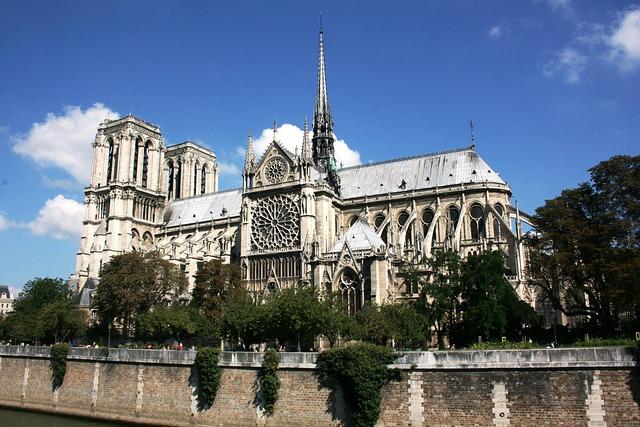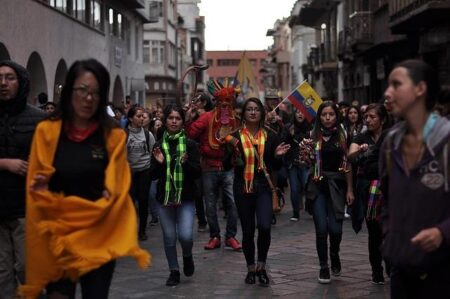Ten years after the horrific Bataclan massacre that left 90 dead and hundreds wounded, Paris continues to grapple with the enduring scars of the Islamic StateŌĆÖs deadly attacks. The coordinated assaults in November 2015 not only shattered the French capitalŌĆÖs sense of security but also marked a grim turning point in global terrorism. As the city commemorates this somber anniversary, questions remain about the long-term social, political, and cultural impact of the attacks that forever changed Paris. This report examines how the wounds of that tragic night still resonate today, a decade on.
Paris reflects on decade of trauma from Bataclan massacre and Islamic State violence
Over the past decade, Paris has grappled with the profound and lasting impact of the Bataclan massacre, an event that epitomized the brutal wave of Islamic State-inspired violence across Europe. The streets and communities still bear the weight of lost lives, shattered families, and a collective sense of vulnerability. Authorities have intensified security measures, reshaped counterterrorism strategies, and fostered resilience through public memorials and educational programs aimed at ensuring such a tragedy is never repeated.
Key aspects of ParisŌĆÖs ongoing recovery include:
- Continued support for survivors and families of victims through state-funded counseling and social services.
- Strengthened intelligence-sharing mechanisms between European nations to preempt future threats.
- Commemorative events held annually to honor those lost and reinforce communal solidarity.
- Public initiatives focused on combating radicalization, especially among youth.
| Year | Incident | Casualties | Response |
|---|---|---|---|
| 2015 | Bataclan Theatre Attack | 90+ | Heightened Security, National Mourning |
| 2016 | Nice Truck Attack | 86 | Improved Urban Surveillance |
| 2017 | Paris Police Attacks | 3 | Counterterrorism Task Force Expansion |
Community resilience and the ongoing challenges of healing in the French capital
In the decade following the Bataclan massacre, Paris has demonstrated an unyielding spirit, striving to rebuild both its physical landscape and its social fabric. Community groups, survivors, and city officials have collaborated on initiatives that focus on mental health support, cultural events promoting unity, and educational programs aimed at fostering tolerance. Despite these efforts, the psychological scars remain palpable for many, as anniversaries revive painful memories and fears. Institutions have emphasized the importance of remembrance combined with resilience, acknowledging that healing is a process marked by courage and solidarity.
Key ongoing challenges include:
- Addressing trauma and PTSD among survivors and witnesses
- Combating the rise of radicalization and extremist ideologies within vulnerable communities
- Strengthening social cohesion amid political and cultural tensions
- Ensuring sustained public attention and resources for long-term recovery
| Support Program | Focus Area | Year Launched |
|---|---|---|
| Paris Trauma Care | Psychological counseling | 2016 |
| Voices of Unity | Community dialogue | 2018 |
| Youth Resilience Project | Radicalization prevention | 2020 |
Security measures evolve amid persistent threats from extremist groups
In the decade following the Bataclan tragedy, French authorities have amplified security protocols to counter the evolving tactics deployed by extremist factions. Urban centers like Paris have witnessed the deployment of advanced surveillance technologies, increased pedestrian screenings, and a bolstered presence of counter-terrorism units across critical infrastructures. These efforts are part of a nationwide strategy combining intelligence sharing, community engagement, and legislative reforms intended to preempt and dismantle threats before they materialize.
Key elements of the enhanced security framework include:
- Integration of AI-driven analytics in monitoring suspicious online activities
- Expanded use of biometric verification at transit hubs and events
- Specialized training programs for rapid-response task forces
- Community-based initiatives to foster social cohesion and early warning
| Year | Security Upgrade | Impact |
|---|---|---|
| 2016 | Introduction of Vigipirate enhanced alert | Enhanced border control and public space surveillance |
| 2018 | AI surveillance tools rolled out | Improved threat detection capabilities |
| 2022 | Expanded counter-terrorism task forces | Faster response and neutralization of threats |
Experts call for enhanced mental health support and counter-radicalization programs
In the decade following the tragic events at the Bataclan theatre, specialists across France emphasize the urgent need for comprehensive mental health resources tailored to survivors, their families, and affected communities. The long-term psychological impact of the Islamic State’s attacks has left deep scars, often manifesting as post-traumatic stress disorder, anxiety, and depression. Mental health professionals advocate for integrated care models that combine therapy, community support, and crisis intervention to foster resilience and recovery.
Alongside mental health initiatives, experts highlight the crucial role of counter-radicalization strategies aimed at preventing extremist ideologies from taking root. Effective programs combine education, community engagement, and digital monitoring to identify and support vulnerable individuals before radicalization occurs. Key components recommended for these programs include:
- Early intervention through school-based awareness campaigns.
- Community-led dialogue to build trust and understanding.
- Online outreach targeting potential recruits on social media platforms.
- Multi-agency cooperation including law enforcement, mental health providers, and social services.
| Program Aspect | Primary Focus | Expected Outcome |
|---|---|---|
| Awareness Campaigns | Prevention Education | Increased Public Vigilance |
| Community Dialogue | Building Trust | Enhanced Social Cohesion |
| Digital Outreach | Counter Messaging | Reduced Online Recruitment |
| Multi-Agency Support | Holistic Care | Comprehensive Prevention |
Insights and Conclusions
As Paris marks a decade since the Bataclan massacre, the city continues to grapple with the enduring scars left by the Islamic State attacks. The memories of that tragic night remain vivid, a stark reminder of the ongoing threat of terrorism and the resilience of a community determined to heal and remember. While security measures have intensified and efforts toward unity persist, the impact of that dark chapter in ParisŌĆÖs history endures, shaping the cityŌĆÖs vigilance and collective resolve in the years to come.




